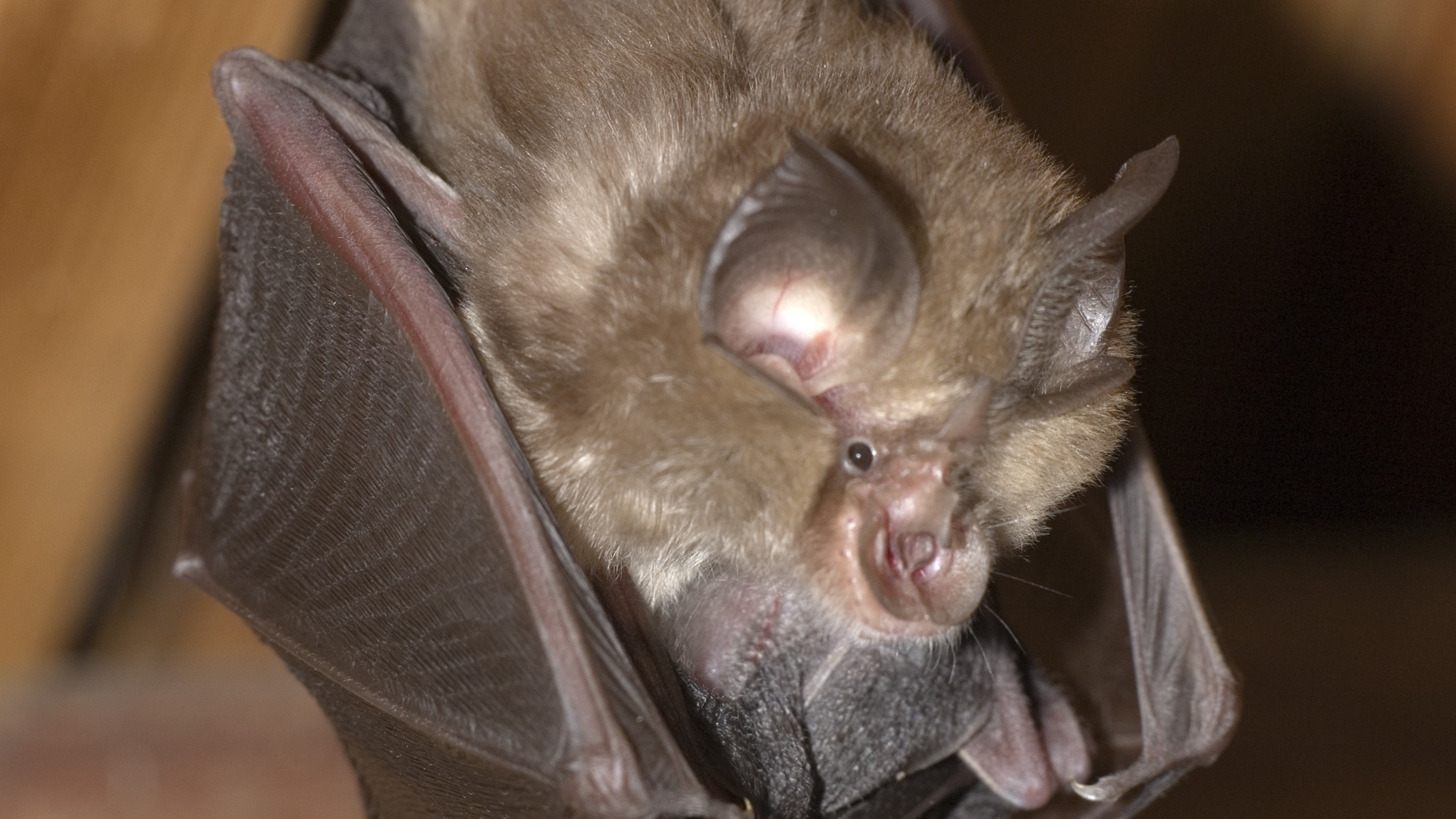Is coronavirus found in British bats a threat?
Scientists say the winged mammals may have harboured the virus for thousands of years

A free daily email with the biggest news stories of the day – and the best features from TheWeek.com
You are now subscribed
Your newsletter sign-up was successful
News that a new coronavirus similar to the one that causes Covid-19 has been found in British bats may not be welcomed by many members of the public.
But ecology student Ivana Murphy, from the University of East Anglia (UEA), made just such a discovery while “collecting bat droppings as part of her final-year dissertation”, reports The Times.
As the newspaper notes, “It is the first time a sarbecovirus - of which Sars-CoV-2, the virus that causes Covid, is one type - has been found in bats in the UK”.
The Week
Escape your echo chamber. Get the facts behind the news, plus analysis from multiple perspectives.

Sign up for The Week's Free Newsletters
From our morning news briefing to a weekly Good News Newsletter, get the best of The Week delivered directly to your inbox.
From our morning news briefing to a weekly Good News Newsletter, get the best of The Week delivered directly to your inbox.
The 22-year-old student used traps and nets to capture more than 50 lesser horseshoe bats in Gloucestershire, Somerset and Monmouthshire in order to collect the faecal samples, before freeing the winged mammals.
The droppings were then sent to Public Health England scientists for viral analysis, which revealed that one sample contained a novel coronavirus. The virus, detected through genome sequencing, has been named “RhGB01” by the UEA team researching the discovery, says the university’s website.
Professor Diana Bell, an expert in emerging zoonotic diseases from UEA’s School of Biological Sciences, said that the bats “almost certainly have harboured this virus for a very long time - probably many thousands of years”.
“We didn’t know about it before because this is the first time that such tests have been carried out in UK bats,” she continued.
A free daily email with the biggest news stories of the day – and the best features from TheWeek.com
“We already know that there are different coronaviruses in many other mammal species too. This is a case of ‘seek and you will find’.”
A danger to the public?
The UAE website says that Murphy wore “full PPE” while collecting the bat droppings and was “regularly tested for Covid-19 to avoid any chance of cross-contamination”.
And “there is no evidence that this novel virus has been transmitted to humans, or that it could in future, unless it mutates”, according to the experts.
Underlining that message, Professor Andrew Cunningham, from the Zoological Society of London, explained that “this UK virus is not a threat to humans because the receptor-binding domain (RBD) - the part of the virus that attaches to host cells to infect them - is not compatible with being able to infect human cells”.
However, he added, “the problem is that any bat harbouring a Sars-like coronavirus can act as a melting pot for virus mutation”.
So if people were to pass Covid-19 to bats, the virus could potentially combine with the newly discovered RhGB01 to form a new virus that could infect humans.
Given that risk, “we need to apply stringent regulations globally for anyone handling bats and other wild animals”, said UEA’s Professor Bell.
What next?
Researchers believe sarbecovirus are probably present in other species of Rhinolophidae, the family of bats to which horseshoe bats belong, as well as in many other mammal species.
“Our findings highlight the need for robust testing for these types of viruses in bat populations around the world,” say the UEA team.
But in the meantime, bats should not be made to suffer because of the coronavirus link, adds the student who made the new discovery, which is outlined in a paper on the Research Square platform for study reports that have not completed peer review.
“More than anything, I’m worried that people may suddenly start fearing and persecuting bats, which is the last thing I would want and would be unnecessary. As like all wildlife, if left alone they do not pose any threat,” Murphy said.
Sorcha Bradley is a writer at The Week and a regular on “The Week Unwrapped” podcast. She worked at The Week magazine for a year and a half before taking up her current role with the digital team, where she mostly covers UK current affairs and politics. Before joining The Week, Sorcha worked at slow-news start-up Tortoise Media. She has also written for Sky News, The Sunday Times, the London Evening Standard and Grazia magazine, among other publications. She has a master’s in newspaper journalism from City, University of London, where she specialised in political journalism.
-
 The Week Unwrapped: Do the Freemasons have too much sway in the police force?
The Week Unwrapped: Do the Freemasons have too much sway in the police force?Podcast Plus, what does the growing popularity of prediction markets mean for the future? And why are UK film and TV workers struggling?
-
 Properties of the week: pretty thatched cottages
Properties of the week: pretty thatched cottagesThe Week Recommends Featuring homes in West Sussex, Dorset and Suffolk
-
 The week’s best photos
The week’s best photosIn Pictures An explosive meal, a carnival of joy, and more
-
 The new Stratus Covid strain – and why it’s on the rise
The new Stratus Covid strain – and why it’s on the riseThe Explainer ‘No evidence’ new variant is more dangerous or that vaccines won’t work against it, say UK health experts
-
 Covid-19: what to know about UK's new Juno and Pirola variants
Covid-19: what to know about UK's new Juno and Pirola variantsin depth Rapidly spreading new JN.1 strain is 'yet another reminder that the pandemic is far from over'
-
 Vallance diaries: Boris Johnson 'bamboozled' by Covid science
Vallance diaries: Boris Johnson 'bamboozled' by Covid scienceSpeed Read Then PM struggled to get his head around key terms and stats, chief scientific advisor claims
-
 Good health news: seven surprising medical discoveries made in 2023
Good health news: seven surprising medical discoveries made in 2023In Depth A fingerprint test for cancer, a menopause patch and the shocking impacts of body odour are just a few of the developments made this year
-
 How serious a threat is new Omicron Covid variant XBB.1.5?
How serious a threat is new Omicron Covid variant XBB.1.5?feature The so-called Kraken strain can bind more tightly to ‘the doors the virus uses to enter our cells’
-
 Will new ‘bivalent booster’ head off a winter Covid wave?
Will new ‘bivalent booster’ head off a winter Covid wave?Today's Big Question The jab combines the original form of the Covid vaccine with a version tailored for Omicron
-
 Non-Covid excess deaths: why are they rising?
Non-Covid excess deaths: why are they rising?In the Spotlight Experts call for probe as mortality rates in England and Wales climb despite drop in coronavirus deaths
-
 Can North Korea control a major Covid outbreak?
Can North Korea control a major Covid outbreak?feature Notoriously secretive state ‘on verge of catastrophe’